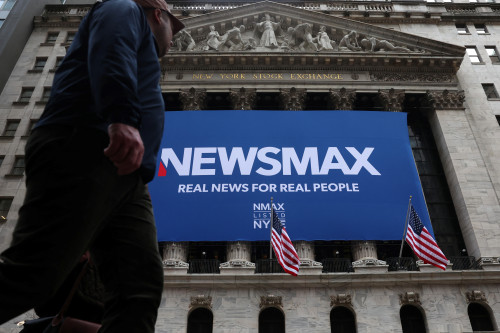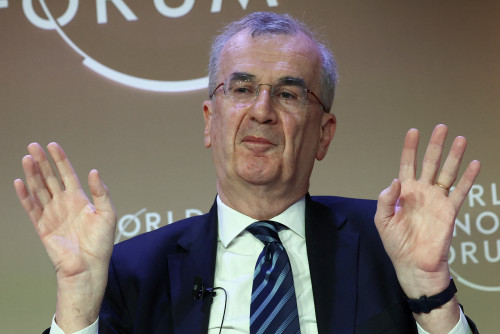By Nell Mackenzie, Carolina Mandl and Summer Zhen
LONDON (Reuters) – Turbulent March markets stalled positive returns for some of the biggest global hedge funds while systematic and some smaller, more nimble funds ended the first quarter with positive returns, according to sources familiar with the matter.
As investors adjusted to seismic shifts in German policies and growing U.S. tariff uncertainty, German 10-year bonds suffered their largest weekly selloff since 1990, the euro saw its largest monthly gain since 2022, and the S&P 500 its biggest weekly fall in six months.
Hedge funds cut equity exposure in early March. The biggest funds faced margin calls, requiring traders to stump up more cash in risky markets, UBS told clients in a note on March 27.
Portfolio losses stemmed from stocks that were sensitive to the overall rise and fall of markets, including the biggest U.S. tech names, it said.
“…multi-strat funds acted quickly to raise cash, mitigate losses, and preserve profitable trades in other areas such as swap spreads and macro exposures,” it added.
Performance was not even among the biggest global multi-strategy funds. Citadel and Millennium Management returned -0.8% and -2% for the quarter, respectively, said sources.
ExodusPoint posted gains of 3.5% for the quarter, after a positive performance in March, according to a person familiar with the matter. Balyasny Asset Management finished the quarter up 2.5%, said a separate source.
Asia-based multi strategy funds’ performance was relatively steady. Singapore’s Dymon Asia Capital returned 2.8% for the first quarter.
The five funds’ results were first published by Bloomberg on April 1.
With the S&P 500 down 5.8% for March, “those platforms with higher levels of exposure underperformed peers who have a greater exposure to fixed income strategies,” said Kier Boley, co-head and CIO of UBP Alternative Investment Solutions.
Hedge funds with a more systematic approach fared better, especially those with funds that trade managed futures and niche markets.
Billionaire investor Cliff Asness’s AQR Capital Management finished the first quarter with positive returns in several of its funds, a source familiar with the matter said on Tuesday.
The $128-billion hedge fund returned a positive 3.4% performance in March. Its multi-strategy fund, Apex Strategy, finished with a 9% first-quarter return.
It benefited from a balanced long and short strategy. It also saw arbitrage gains, exploiting the difference of one financial asset against another, said the source.
A long position expects an asset to rise, whereas a short position makes money when it declines in value.
AQR’s Managed Futures Full Strategy posted an 8.2% return for the quarter. This fund was buoyed by stocks trades but also benefited from successful fixed-income and commodities trades.
Hedge fund EDL Capital, which trades assets such as currencies and bonds based on global macroeconomic outlooks, has returned 22% so far in 2025, a source familiar with the situation said on Wednesday.
The $1.5-billion fund, run by star trader Edouard de Langlade, finished March up 14%, after returning 5.9% in February, the source said.
Bridgewater Associates’ flagship fund Pure Alpha 18% volatility posted a gain of 9.9% in the first quarter, Reuters reported.
Hedge funds picking long and short stock positions posted a negative 2.4% return in March, whereas systematic stock traders gained over 4%, Goldman Sachs said in a note to clients on Wednesday.
Fund March Q1 2025
AQR Apex Strategy 3.4% 9%
AQR Delphi Long-Short Equity Strategy 2.3% 9.7%
AQR Helix Strategy 4.4% 3%
AQR Managed Futures Full Strategy 2.5% 8.2%
EDL Capital 14% 22%
Citadel Wellington -0.5% -0.8%
Millennium Management -1.2% -2%
Balyasny -1.00% 2.5%
ExodusPoint 0.7% 3.5%
Dymon Asia 1.3% 2.8%
Bridgewater Pure Alpha 18% volatility 9.9%
Man Strategies 1783 1.37% 3.59%
CFM Discus -3.35% 4.24%
CFM Stratus -0.02% 4.45%
Brevan Howard Alpha Strategies -.5% 1.5%
Brevan Howard Master Fund -1.49% -5.81%
Brevan Howard Emerging Markets -.48% 4%
(Reporting by Nell Mackenzie in London and Carolina Mandl in New York; Editing by Mark Potter,, Clarence Fernandez and David Evans)






